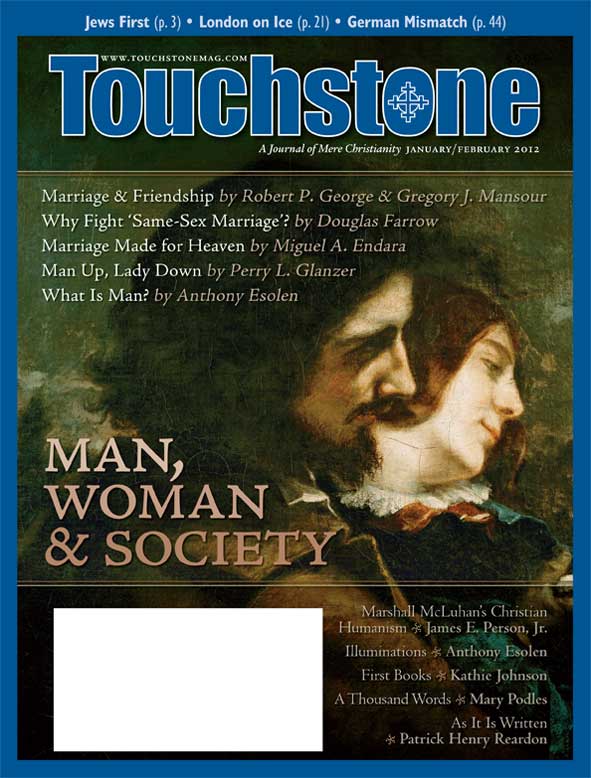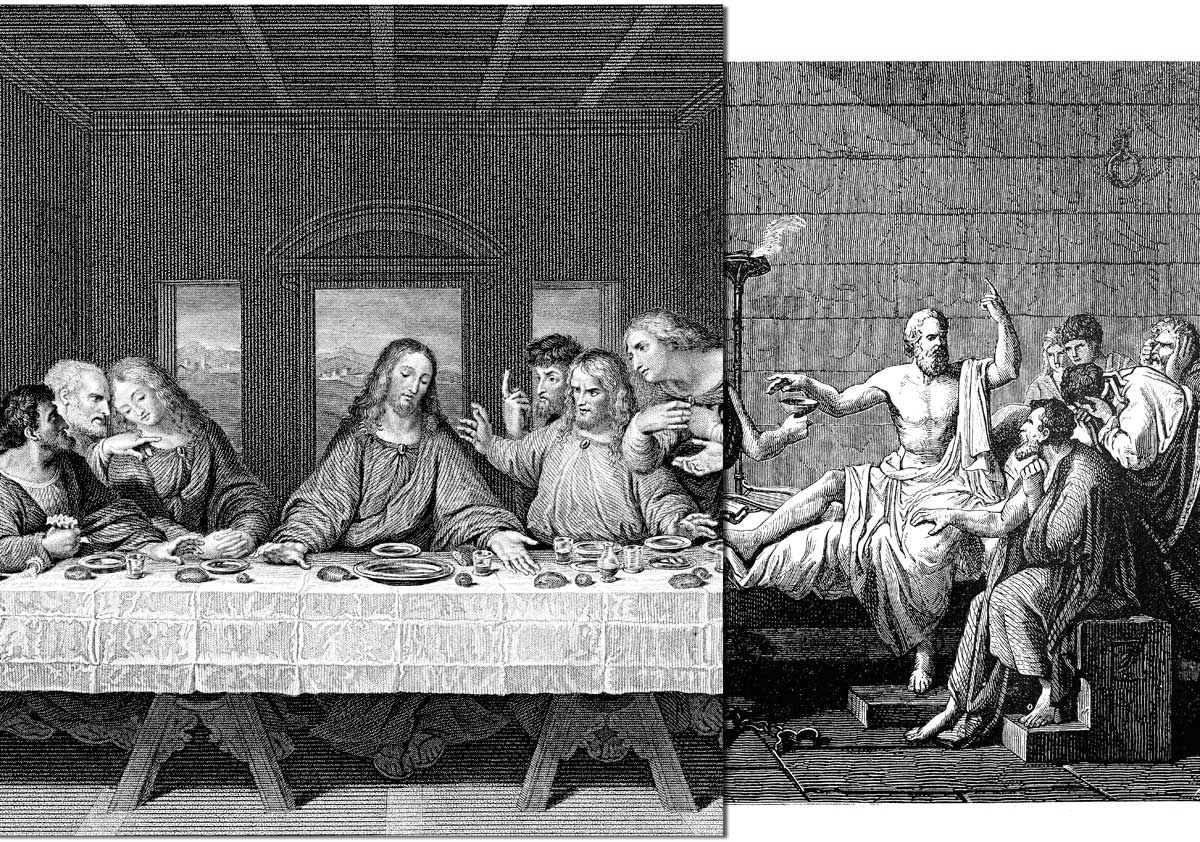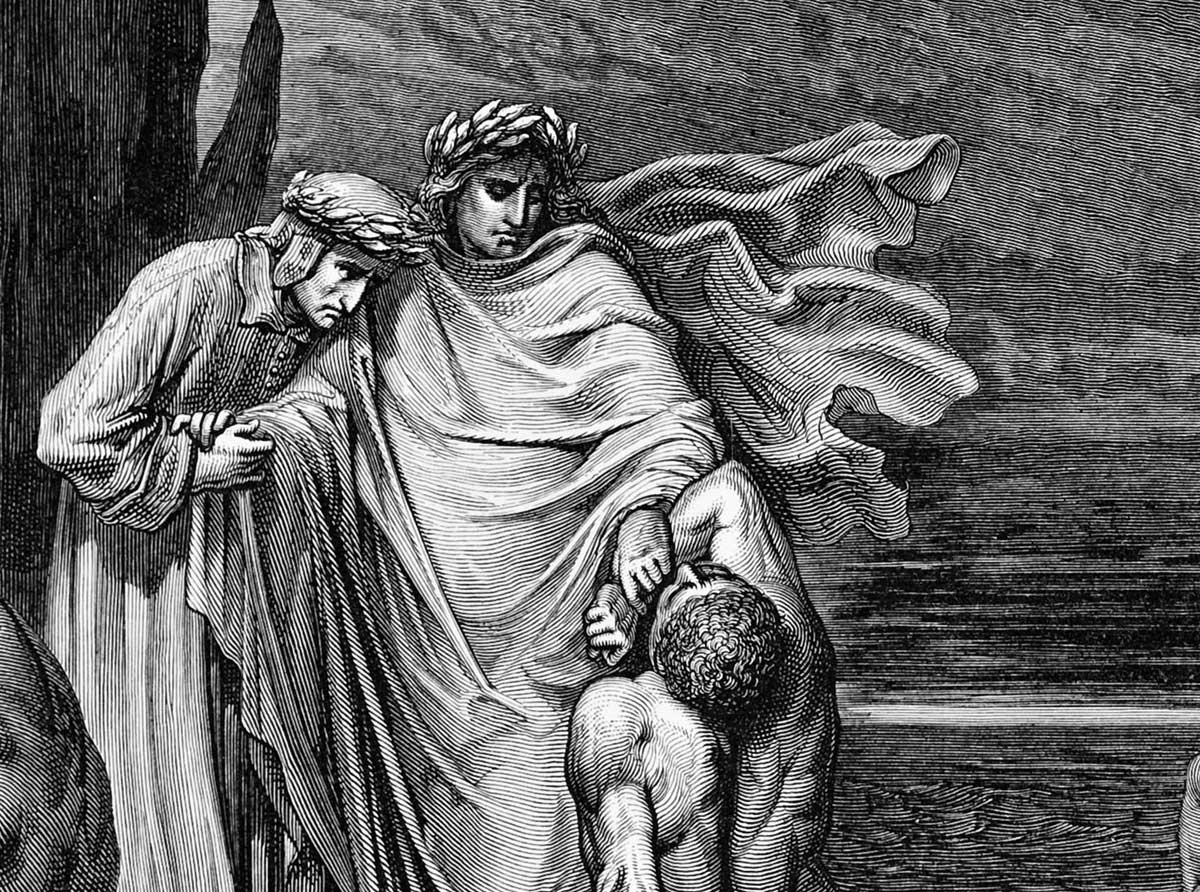Pieper’s Pearl
The Platonic Myths
by Josef Pieper
Introduction by James V. Schall
St. Augustine’s Press, 2011
(94 pages, $11.00, paperback)
reviewed by Graeme Hunter
Platonic dialogues usually present Socrates, the father of Western philosophy, in conversation with other people. What are called the “early dialogues” present a Socrates who examines his interlocutors and refutes their beliefs. In later dialogues, Socrates’ own beliefs (or more likely those of Plato) take center stage. Plato is a powerful writer and Socrates a heroic figure. Not to read the dialogues is to neglect one of history’s defining personalities, and some of world literature’s highest peaks.
But here is something surprising that only a few of Plato’s readers have understood. In many dialogues, Socrates tells mythic stories, and treats them with more sincere deference than he ever shows toward his interlocutors. Socrates claims to believe these stories, and exhorts his interlocutors to believe them too, saying they are the key to leading lives worth living. He often adds that it is not the exact imagery of the story that is important, but the truth it symbolizes and the piety it demands. These extraordinary stories are the subject of Josef Pieper’s profound essay, The Platonic Myths.
Pieper’s short book appeared originally in German in 1965. Dan Farrelly’s elegant translation makes it available in English for the first time. And this is a lucky thing both for scholars and for the quickly vanishing class of general readers.
Scholars will find here an account of Plato’s myths that makes today’s academic consensus about them look shallow. Not that defenders of the consensus pay Pieper much heed. He does not write in the pretentious prose that is prized in academia. He writes as an inquirer and a philosopher would, if he stumbled onto a pearl of great price. He writes as a man who has heard tell of a timeless and fruitful truth, the logos that underlies all things, to which philosophy and myth in different ways give stammering expression. In Plato, Pieper finds a reliable guide to bring him close to this vivifying and liberating truth.
Serious readers will not regret accompanying Pieper on his journey of discovery. “This little book . . . is something that I have been looking for all my life,” writes Father James Schall in the Introduction, “but I did not know that this was what I was looking for. I recognized it when I read it.” Many readers, I predict, will make a similar discovery.
A Kernel of Truth in a Shell of Imagery
Plato’s myths are stories that Socrates tells, but that he did not invent. He says he has heard them from wise men and women. And hearing, he believed.
The great myths in Plato concern first and last things. They tell us where we came from and where we are going.
But why, you might wonder, would a philosopher resort to the language of myth? Aren’t philosophers supposed to unfold in the form of arguments what they have learned by reasoning from first principles? Pieper gives the right answer to this good question:
Graeme Hunter is a contributing editor to Touchstone and Research Professor of Philosophy at Dominican University College in Ottawa. He is the author of Radical Protestantism in Spinoza's Thought (Ashgate).
subscription options
Order
Print/Online Subscription
Get six issues (one year) of Touchstone PLUS full online access including pdf downloads for only $39.95. That's only $3.34 per month!
Order
Online Only
Subscription
Get a one-year full-access subscription to the Touchstone online archives for only $19.95. That's only $1.66 per month!
bulk subscriptions
Order Touchstone subscriptions in bulk and save $10 per sub! Each subscription includes 6 issues of Touchstone plus full online access to touchstonemag.com—including archives, videos, and pdf downloads of recent issues for only $29.95 each! Great for churches or study groups.
Transactions will be processed on a secure server.
more from the online archives
calling all readers
Please Donate
"There are magazines worth reading but few worth saving . . . Touchstone is just such a magazine."
—Alice von Hildebrand"Here we do not concede one square millimeter of territory to falsehood, folly, contemporary sentimentality, or fashion. We speak the truth, and let God be our judge. . . . Touchstone is the one committedly Christian conservative journal."
Support Touchstone
—Anthony Esolen, Touchstone senior editor










